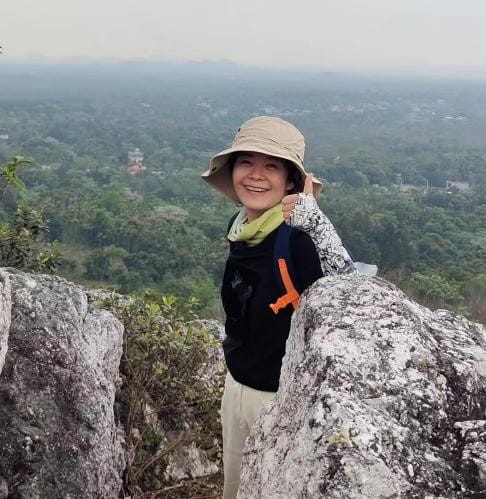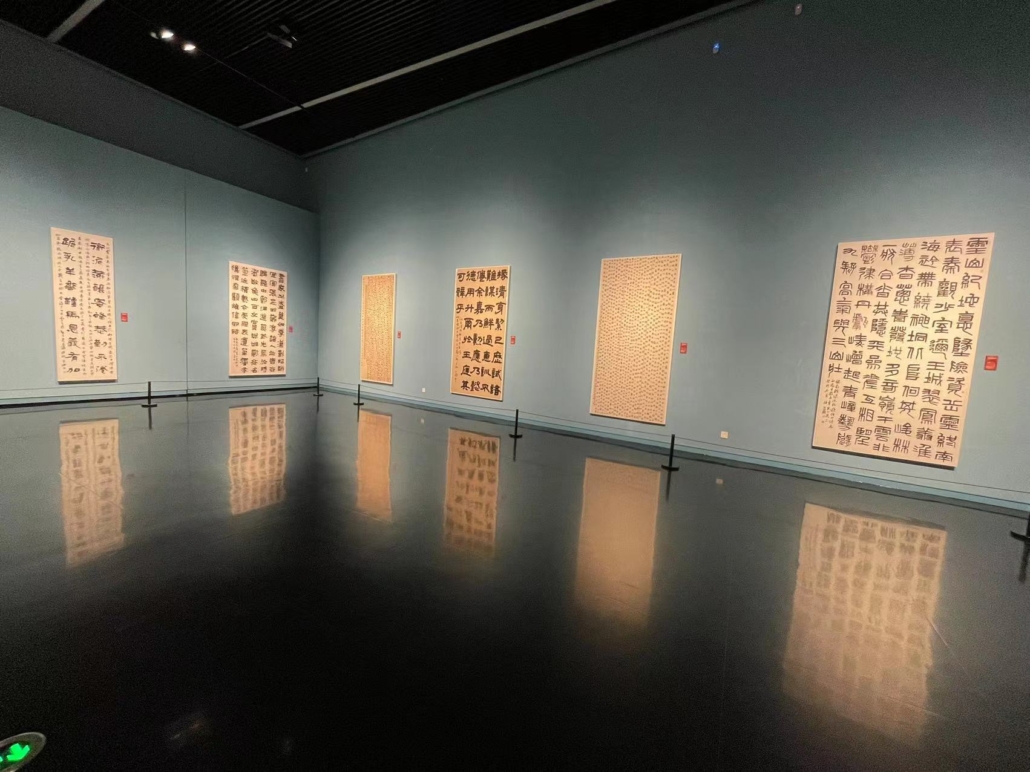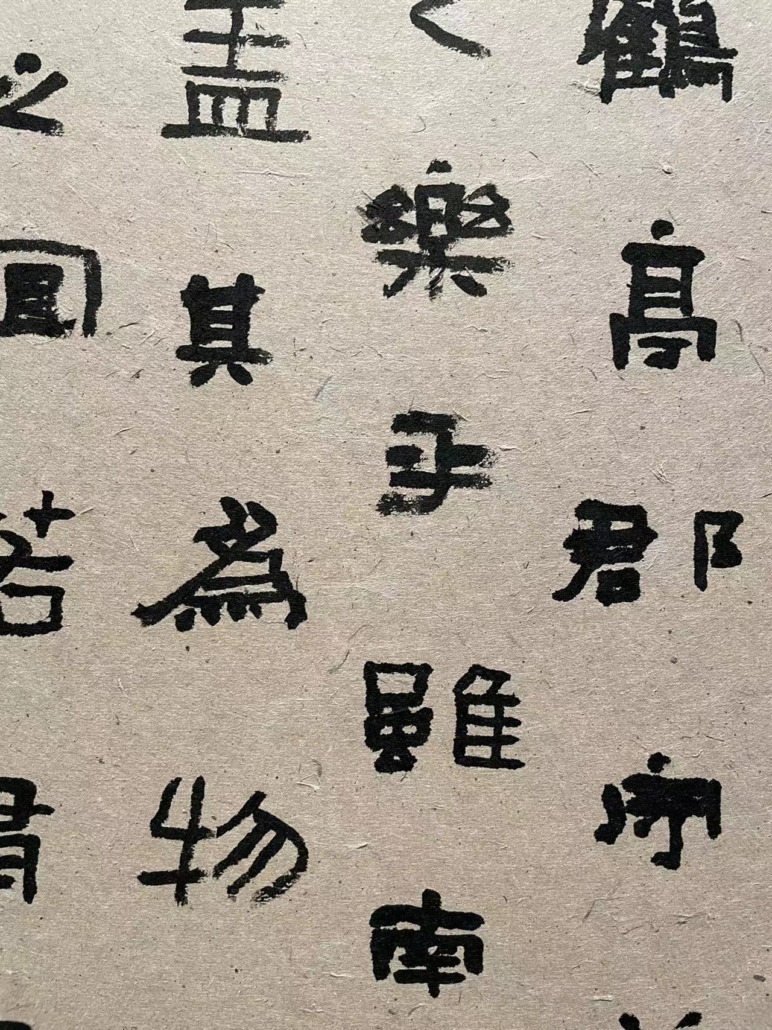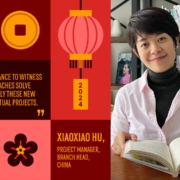Interview with Xiaoxiao Hu, Head of Janus Worldwide’s Office in China
Xiaoxiao Hu is a project manager in the Global Localization Department and heads up our office in China. We spoke to her about her professional journey as part of our company, her approach to work, China’s unique culture, and a few other interesting topics. We hope you enjoy reading the interview!

Hello Xiaoxiao! Thank you very much for supporting our initiative and agreeing to this interview! We’d love to hear about your professional journey in the translation and localization industry, both generally and specifically as part of Janus Worldwide.
Thank you for speaking to me. I’m delighted to have this chance to share my professional journey in the translation and localization industry. I began my career as a translator, a foundation which proved invaluable when I transitioned to a project manager role. In this position, I was able to leverage my experience as a linguist to anticipate and prevent potential issues during the execution of various localization projects. This dual perspective has allowed me to effectively bridge the gap between translation and project management, ensuring smoother and more efficient workflows.
In 2015, I joined Janus Worldwide as one of the project managers in the HP team.
A significant milestone for us was the opening of our new office in Hainan last year, with the goal of attracting more Chinese clients and strengthening our presence in the region. We are excited about the opportunities this new office brings and are dedicated to providing high-quality localization services tailored to the unique needs of our Chinese clients. Our goal is to help more Chinese clients expand their global presence and succeed on the international stage.
You have worked at Janus Worldwide for almost 10 years. What are your most vivid memories of your time at the company?
One of my most vivid memories relates to a video production project last year, where we were asked to produce several videos from scratch for a client’s products but were given very limited supporting materials from the client.
Our team had to get creative and be resourceful to meet the client’s expectations. We conducted thorough research, tapped into our network for additional resources, and used innovative techniques to fill in the gaps. Despite the challenges, the project was a success, and the client was extremely satisfied with the final product. It’s projects like these that make my time at Janus fulfilling.
What do you cherish most of all in your daily work?
What I cherish most in my daily work is the opportunity to continually learn new things while collaborating with a team of dedicated and talented professionals. Rapid advances in technology are transforming industries across the board, including the localization sector. At Janus, I have the chance to witness how innovative approaches solve challenges and to apply these new technologies in my actual projects. I particularly enjoy the problem-solving aspect, where we devise solutions that enhance efficiency for both our clients and our team.
What do you like most of all about Janus Worldwide’s corporate culture?
Of Janus’ five core values (PROFESSIONALISM, CUSTOMER FOCUS, EFFICIENCY AND PURPOSEFULNESS, IMPROVEMENT AND INNOVATION, POSITIVE AND DEVELOPING ATMOSPHERE), I find the POSITIVE AND DEVELOPING ATMOSPHERE most appealing. This aspect of our corporate culture fosters a supportive and encouraging environment where employees are empowered to grow both personally and professionally. I appreciate how Janus creates a positive workplace culture that inspires creativity, productivity, and overall job satisfaction.
Could you tell us a bit more about the unique Chinese culture?
Chinese culture is rich and diverse, with a history that spans thousands of years. It is characterized by its emphasis on family values, respect for tradition, and a deep appreciation for arts and literature. Festivals like Chinese New Year and the Mid-Autumn Festival highlight the importance of family and community. Traditional Chinese philosophy, including Confucianism, Taoism, and Buddhism, continues to influence daily life and societal norms in China.
The traditional arts of China, such as painting, music, and dance, are deeply expressive and have a timeless appeal. Personally, I am particularly drawn to Chinese calligraphy. I enjoy appreciating and observing calligraphy works, and I’m also taking my own first steps in practicing calligraphy. This practice gives me a profound sense of serenity and immersion, allowing me to connect with the cultural essence of China and find inner peace.


What places of interest would you recommend to colleagues who have never been to China, but would like to visit?
For colleagues visiting China for the first time, I would recommend the Great Wall, the Forbidden City in Beijing, and the Terracotta Warriors in Xi’an. These iconic sites offer a glimpse into China’s rich historical heritage. Additionally, experiencing the bustling city life in Shanghai and the picturesque landscapes of Guilin and Zhangjiajie would give visitors a well-rounded view of the country.
Friendly tip: These are popular destinations, so avoid visiting during Chinese public holidays unless you want to experience the thrill of being part of a human sea!
China has resumed its 144-hour visa-free transit policy, which allows people from certain countries to enjoy six days of travel to select areas of the country without applying for a visa beforehand.
What places of interest do you personally enjoy the most?
Personally, I enjoy visiting the serene and scenic areas of China. Relaxing beside West Lake in Hangzhou while sipping an aromatic tea is a wonderful way to unwind and take in the beauty of your surroundings. Additionally, exploring the mountains and meadows of Shangri-La is a favorite experience of mine. The breathtaking landscapes, combined with the joy of picking mushrooms along the way, make for an unforgettable journey. These activities not only offer a peaceful retreat but also allow me to connect with nature and appreciate the unique beauty of China’s diverse landscapes.
What can you tell us about China’s distinctive cuisine?
Chinese cuisine is renowned for its diversity and rich flavors, with each region offering unique dishes and cooking styles. For those interested in exploring Chinese food further, I highly recommend the documentary “A Bite of China.” This series has gained popularity both in China and around the world for its in-depth and beautifully filmed exploration of Chinese culinary traditions and the cultural significance behind the food.
Traditional Chinese culture places great importance on the concept of “eating according to the season” (不时不食), meaning that each solar term has its own seasonal foods. For instance, just recently on June 10th, we celebrated the Dragon Boat Festival. During this time, many families prepare and enjoy homemade Zongzi (sticky rice dumplings wrapped in green leaves).
What is your life credo?
My life credo is “尽人事,听天命,” which translates as “Do your best and accept what comes.” This philosophy emphasizes the importance of tackling everything you do with the utmost effort and dedication, while also recognizing and accepting the outcomes that are beyond your control. It encourages a balance between hard work and acceptance, reminding me to focus on what I can change and to be at peace with what I cannot.
Thank you very much for speaking to us! We wish you every success and the best of luck!





